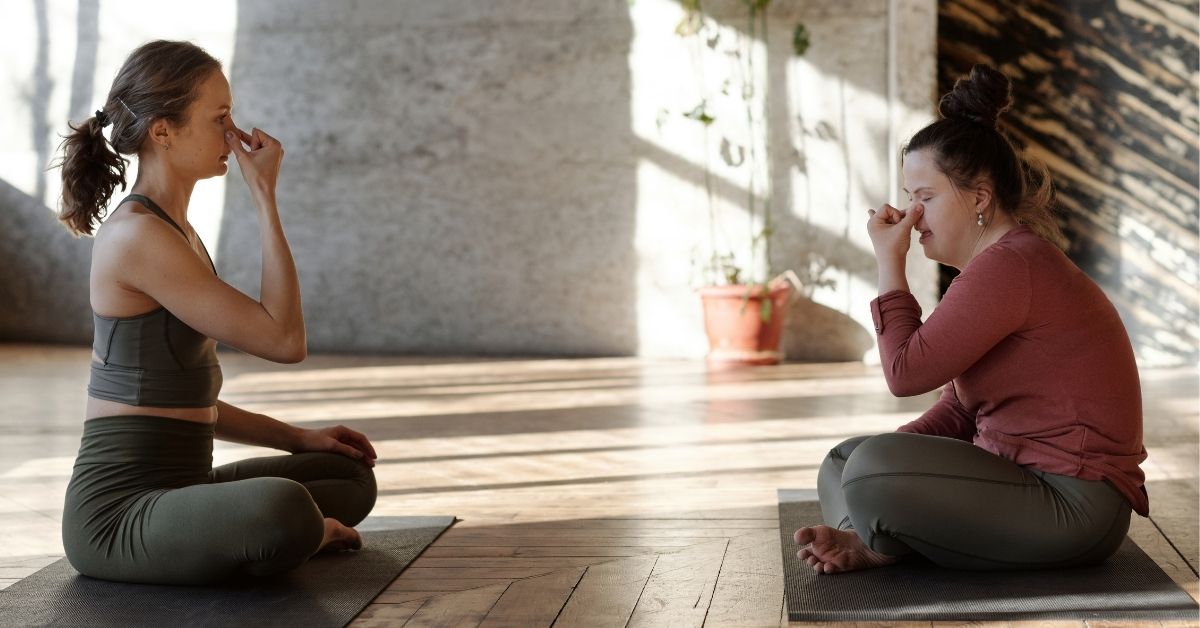
Deep Breathing Technique for Anxiety
Deep breathing is a quick and effective way to reduce anxiety and stress. When breathing deeply, you're making your body and mind strong and more capable of dealing with day-to-day issues and triggers that can cause anxiety.
The Many Benefits of Deep Breathing
When you take shallow, uneven breaths, you're causing your heart to beat at a faster rate, which increases blood flow through your body. Increased blood flow puts unnecessary pressure on veins and arteries, leading to serious health complications.
Breathing exercises help improve cardiovascular health by slowing your heart rate and lowering your blood pressure. With a slow, steady heart rate and lower blood pressure, blood can flow evenly through your body; preventing vein and artery damage.
If you have constant tension in your back, neck or other muscles, breathing deeply encourages muscles to relax. When under stress, muscles tense up and become rigid. Even if you don't notice muscle tension during times of stress and anxiety, you may experience muscle soreness afterward.
Breathing exercises help reduce muscle tension and help prevent soreness. In many cases, you may experience a release in muscle tension after completing your practice.
In addition, breathing deeply helps prevent the release of potentially harmful hormones such as cortisol and adrenaline. Though useful during times when you might be in physical danger, these hormones can do more harm than good if released often. By reducing stress, you reduce the release of these hormones.
By learning how to breathe slowly and deeply, you can improve mental focus, reduce stress and lessen feelings of anxiety. Breathing deeply helps increase oxygen flow to your brain. The ability to think clearly allows you to find ways to reduce stress and anxiety.
How to Deep Breathe
Whenever you're feeling stressed or about to engage in a stressful activity like giving a presentation or meeting new people, try this easy breathing exercise to help you remain calm and relaxed. You can practice this exercise anytime – that's what's so great about it!
Find a quiet place to practice this breathing exercise.
Stand, sit or lie down to begin. When you're ready, slowly inhale through your nose for a count of five seconds. During this time, your chest will rise a little bit, and your abdomen will expand. Release all tension from your body, especially in your shoulders and neck, so you feel more relaxed. After inhaling, hold your breath for a count of five seconds.
Slowly exhale through your mouth for five seconds. Remember to keep your body and your jaw relaxed as you breathe out. Empty your lungs for a count of five seconds.
Repeat this breathing sequence for a few minutes or until you begin to feel calm and relaxed.
If performing this breathing exercise only causes you to feel more stressed or anxious, take a moment to sit, stand or lie in place. When you're ready, try the exercise again. If it's just too much right now, that's okay! Try deep breathing at another time.
How to Get the Most from Deep Breathing Exercises
To get the most from breathing exercises, you need to make these exercises a priority. Set aside at least five minutes a day to regularly practice breathing exercises. You can practice in the morning, at lunchtime, after dinner or before a stressful event. Regular daily practice will yield positive long-term health results.
Find a quiet, peaceful place where your mind and body can relax and fully concentrate on the experience. If you can't find a quiet place, close your office or bedroom door or invest in noise-canceling headphones.
Make sure you take full, deep breaths during your practice to ensure the best results. Take your time – if your breathing practice lasts more than five minutes – that's fine! Some people need 10 or 15 minutes of deep breathing to feel relaxed. Just make sure to complete a minimum of five minutes per session daily.
More Ways to Reduce Anxiety and Stress
In addition to breathing exercises, listening to music, going for a walk, engaging in a favorite hobby, talking with a close friend, or quietly sitting can all help reduce anxiety and stress.
Avoid stressful situations whenever possible, eat a healthy diet, and exercise regularly to help keep your mind and body in good condition. Create a network and family and friends who have a positive attitude. Spending time with those who enjoy life will have a positive effect on your outlook.
When coping with stress and anxiety, it's important to remain patient with yourself. Avoid thinking negative thoughts about yourself and others. Instead, consider all the positive qualities you have and celebrate them! Take time for yourself by indulging in a favorite activity or consider learning a new skill or taking up a new hobby.


